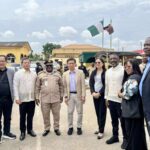President Bio Leads High-Level Talks to Reinforce ECOWAS Unity and Stability.
By Raymond Enoch.
His Excellency Julius Maada Bio, President of the Republic of Sierra Leone and Chairman of the ECOWAS Authority of Heads of State and Government, has concluded a high-level diplomatic tour of Guinea-Bissau, The Gambia, Cape Verde, and Senegal, aimed at deepening political cohesion and bolstering regional collaboration across West Africa. The visits mark a decisive step toward unifying the region’s response to escalating challenges around governance, security, and economic integration.
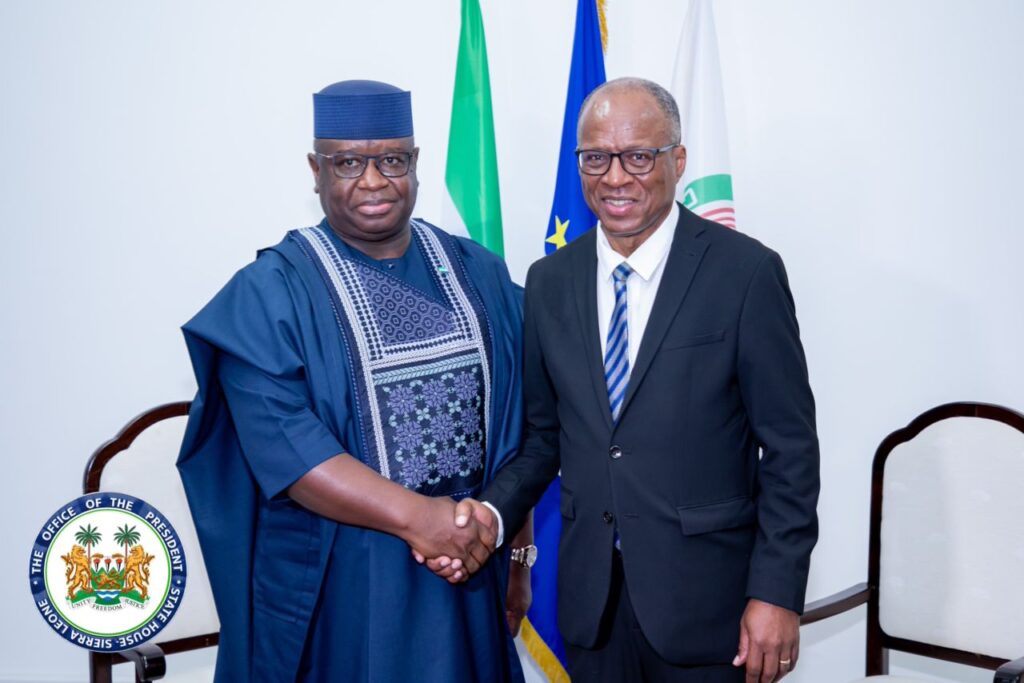
Over the course of one week, President Bio engaged in intensive consultations with his counterparts: President Umaro Sissoco Embaló of Guinea-Bissau, President Adama Barrow of The Gambia, President José Maria Neves of Cape Verde, and President Bassirou Diomaye Faye of Senegal. In each capital, he was welcomed with full state honors and hailed for his recent appointment as ECOWAS Chairman — a role assumed at a pivotal moment in the region’s history.
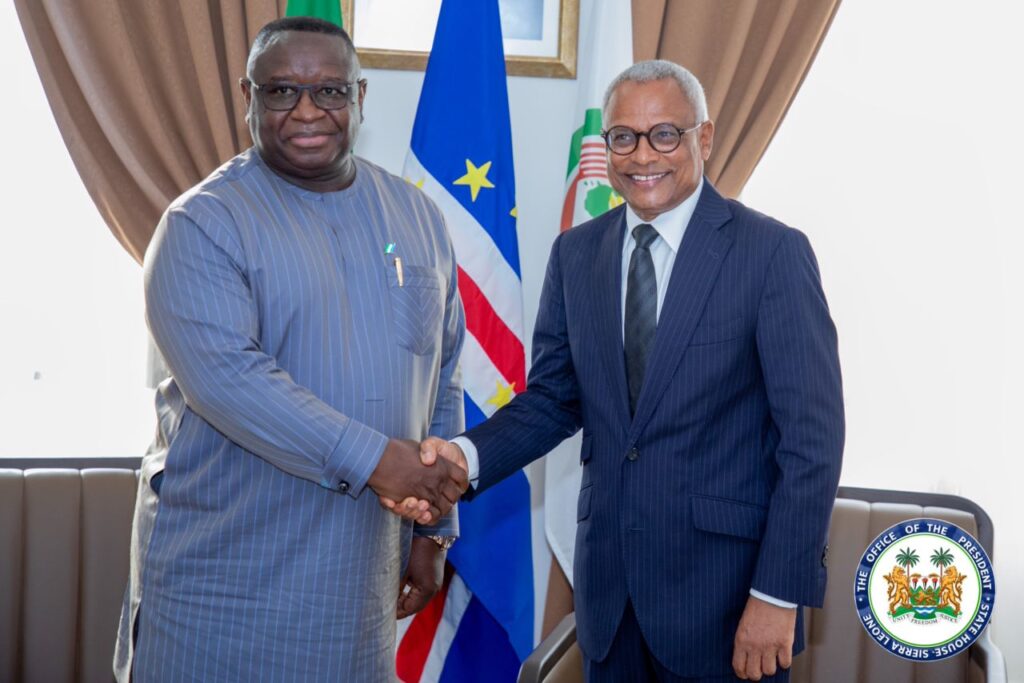
During bilateral meetings, the leaders reiterated their commitment to reinforcing ECOWAS as a functional bloc capable of responding to the needs of its people. President Bio, in turn, emphasized that West Africa’s future rests on solidarity and collective political will. He called for the revitalization of regional institutions, the upholding of democratic values, and urgent joint action against terrorism, transnational crime, and unconstitutional seizures of power.
“We are at a crossroads,” President Bio said in Bissau. “Now more than ever, ECOWAS must rise to the occasion and show the world that we are serious about protecting our democracies, defending our sovereignty, and advancing prosperity for our citizens.”
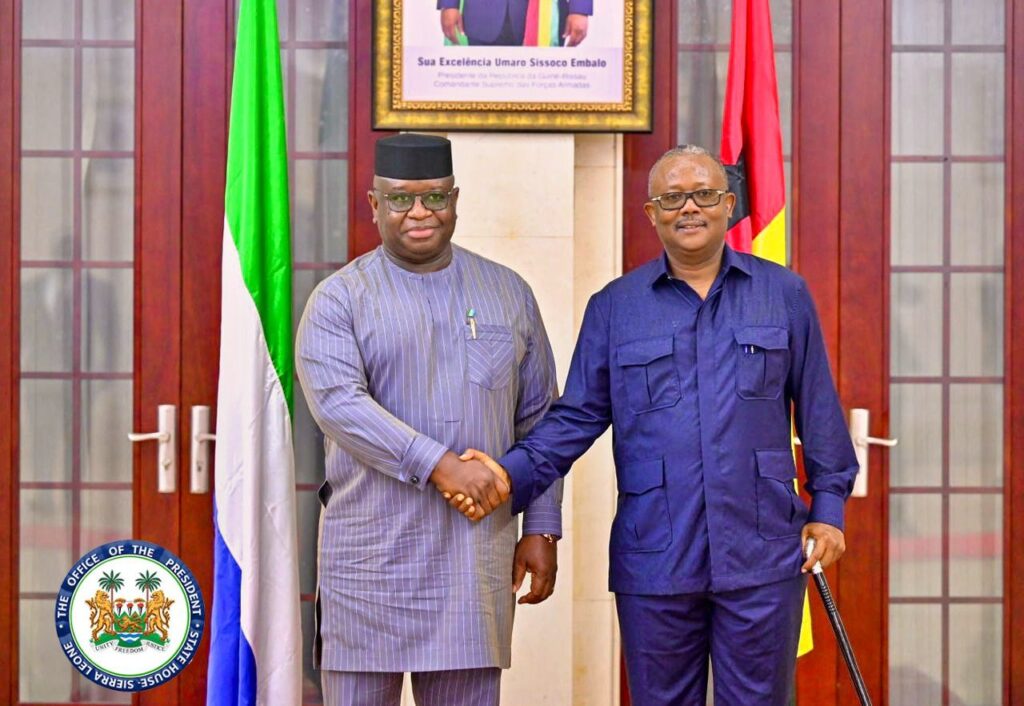
The tour also carried strong economic undertones. President Bio stressed the importance of enhancing intra-regional trade, reducing barriers to movement, and accelerating the implementation of the ECOWAS Single Currency agenda. In Praia, discussions were reportedly held around improving maritime security and blue economy cooperation, particularly between island and coastal states.
A standout theme across the visits was the call for renewed engagement with member states currently undergoing political transitions. President Bio urged ECOWAS to adopt a posture of constructive dialogue and inclusive diplomacy, signaling his openness to coordinated engagement with the breakaway Alliance of Sahel States (AES). This shift in tone comes amid rising tensions between ECOWAS and the AES bloc, which includes Mali, Burkina Faso, and Niger — three countries that have, in recent years, exited ECOWAS following military coups.
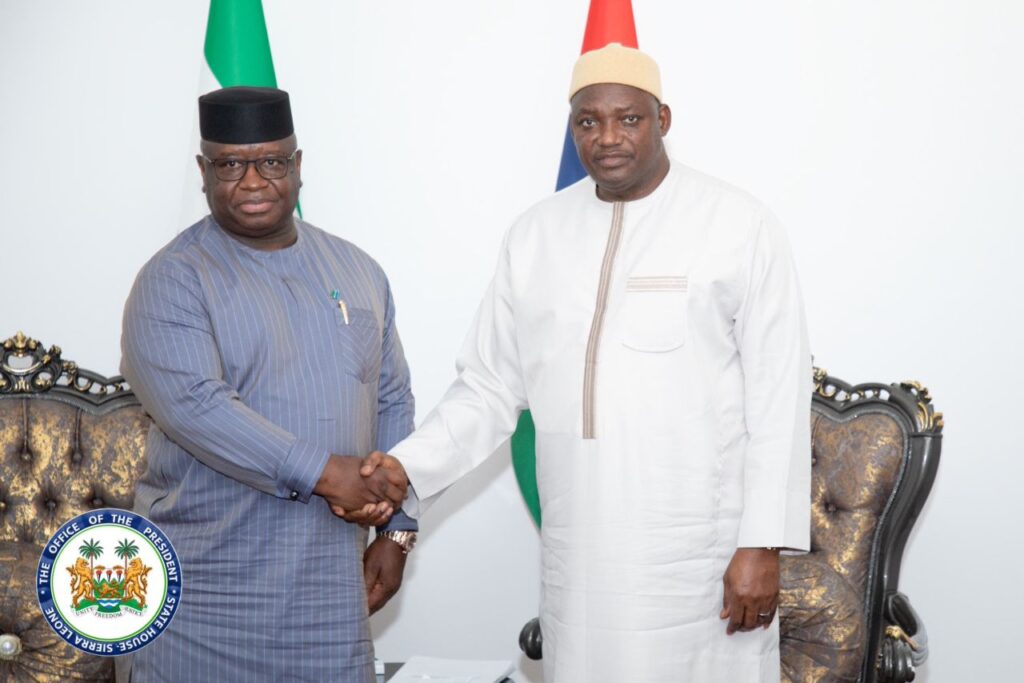
“We must be honest about the fragility of our regional cohesion,” President Bio said while addressing a press conference in Dakar. “Isolation will not resolve our crises. Dialogue and mutual respect are the foundations of peace.”
This tour follows a similar round of engagements last week in Togo, Ghana, and Côte d’Ivoire, where President Bio laid the groundwork for broader regional consensus-building. According to diplomatic sources, the Chairman has been holding consultations with past ECOWAS leaders and policy advisors to shape a comprehensive regional strategy for his tenure.
Observers say the Chairman’s diplomatic sprint signals a leadership style that prioritizes consultation, engagement, and results. ECOWAS insiders describe Bio’s leadership as pragmatic and intentional, with a clear aim of restoring the bloc’s credibility as both a peacekeeping force and a driver of sustainable development.
With a growing sense of urgency around issues such as food insecurity, youth unemployment, and political instability, President Bio’s efforts are widely seen as a necessary recalibration of ECOWAS’s strategic focus. Regional analysts note that the Chairman’s ability to navigate the complex web of political dynamics in West Africa could determine the success of his mandate.
As ECOWAS prepares for its next ordinary summit in Abuja later this year, the outcomes of President Bio’s latest tour are expected to inform key agenda items — particularly regional security coordination, economic integration, and political reconciliation with suspended member states.
For now, the Chairman’s whirlwind diplomacy has reignited hope for a more unified and responsive ECOWAS, even as the challenges before it remain formidable. The tone has been set, and expectations are high.




